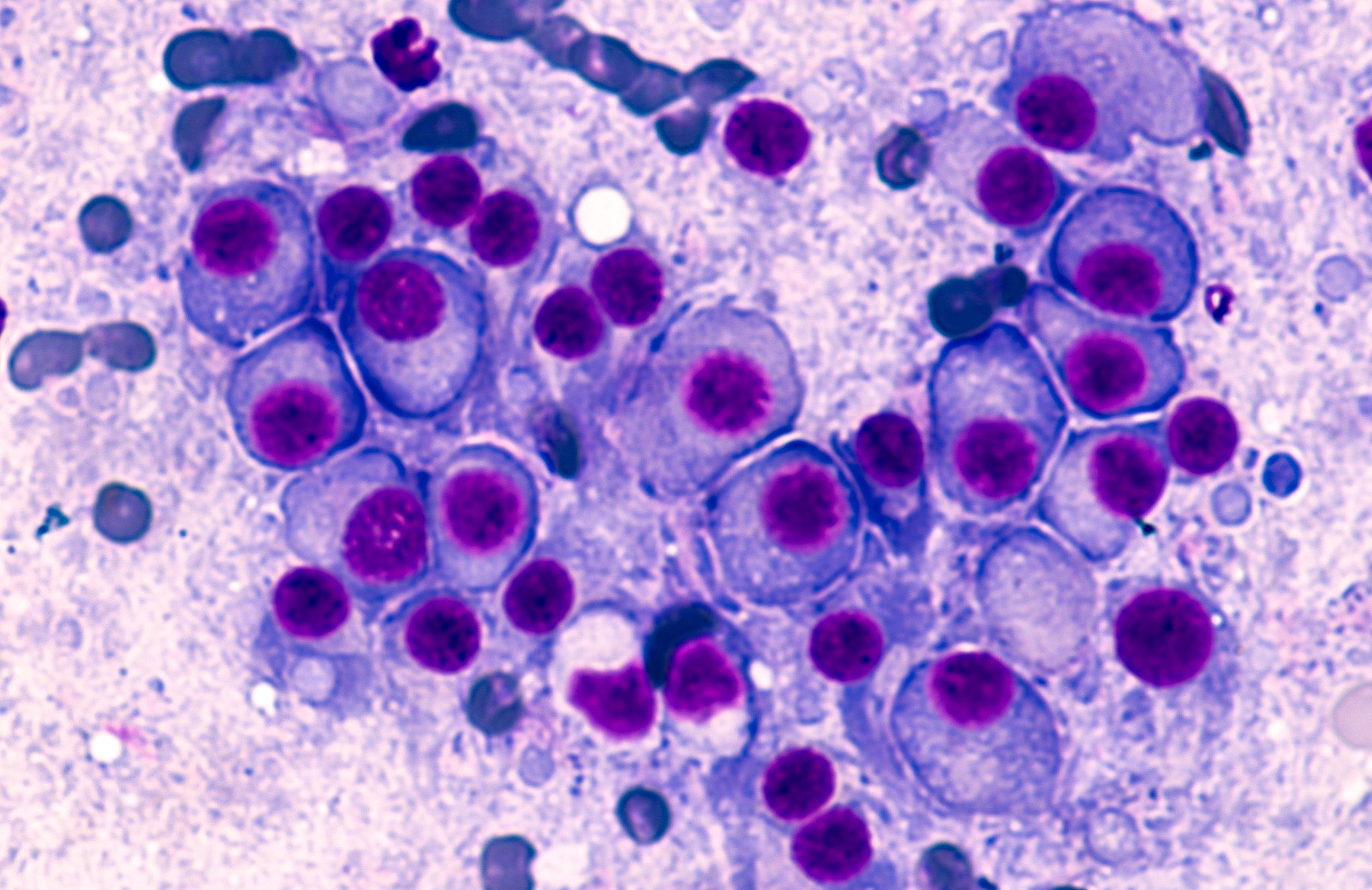Major Advances in Multiple Myeloma: A Recap of the 2024 IMS Meeting
The 2024 International Myeloma Society Annual Meeting was a groundbreaking event that showcased the latest advancements in multiple myeloma research and treatment.
Multiple myeloma cells: © David A Litman - stock.adobe.com

The 2024 International Myeloma Society Annual Meeting was a groundbreaking event that showcased the latest advancements in multiple myeloma research and treatment. Held in Rio de Janeiro, Brazil, the meeting brought together leading experts from around the world to discuss the latest findings in clinical trials, novel therapeutic approaches, and emerging technologies. Attendees had the opportunity to learn about new treatment options, hear about promising clinical trial results, and network with other professionals in the field. The meeting highlighted the significant progress that has been made in recent years in improving outcomes for patients with multiple myeloma.
Here are our highlights from this year’s meeting.
Talquetamab/Daratumumab Demonstrates Promising Efficacy in Relapsed/Refractory Multiple Myeloma
Updated results from the phase 1b TRIMM-2 study (NCT04108195) indicate that the combination of talquetamab-tgvs (Talvey), daratumumab with hyaluronidase-fihj (Darzalex Faspro), and pomalidomide (Pomalyst) produced deep and durable responses in patients with relapsed/refractory multiple myeloma, achieving an overall response rate (ORR) of 82%.
Daratumumab With VRd Betters MRD Negativity in Transplant-Ineligible Myeloma
In the phase 3 CEPHEUS trial (NCT03652064), the addition of subcutaneous daratumumab to the VRd regimen (bortezomib [Velcade], lenalidomide [Revlimid], and dexamethasone) improved minimal residual disease (MRD) negativity rates compared to VRd alone in newly diagnosed patients with multiplemyeloma who were either ineligible for or deferred transplant.
Cilta-Cel Improves Overall Survival in Multiple Myeloma
Treatment with the chimeric antigen receptor (CAR) T-cell therapy ciltacabtagene autoleucel (cilta-cel; Carvykti) reduced the risk of death by 45% vs standard of care in patients with lenalidomide-refractory multiple myeloma and at least 1 prior line of therapy, according to updated results from the phase 3 CARTITUDE-4 trial.
Encouraging Efficacy and Safety Profile Demonstrated by Anito-Cel in R/R Multiple Myeloma
Findings from a phase 1 (NCT04155749) trial evaluating the BCMA-directed CAR T-cell therapy, anitocabtagene autoleucel (anito-cel; CART-ddBCMA), demonstrated impressive and durable efficacy rates in patients with relapsed/refractory multiple myeloma.
Breakthrough for Advanced Myeloma? Talquetamab/Teclistamab Delivers Durable Responses
Talquetamab plus teclistamab-cqyv (Tecvayli) delivered a high rate of durable responses in patients with triple-class exposed relapsed/refractory multiple myeloma, according to findings from the phase 1b RedirecTT-1 study (NCT04586426).
Insights From the AURIGA Trial in Multiple Myeloma
Ashraf Z. Badros, MB, ChB, professor of medicine, director of the Multiple Myeloma Service, and vice chair of the Clinical Research Committee for the Program in Oncology at the University of Maryland School of Medicine in Baltimore, discusses the key takeaways from the phase 3 AURIGA trial (NCT03901963).
Gasparetto Explains Rationale for Quadruplet Front Line in Transplant-Ineligible Myeloma
February 22nd 2025In a Community Case Forum in partnership with the North Carolina Oncology Association, Cristina Gasparetto, MD, discussed the CEPHEUS, IMROZ, and BENEFIT trials of treatment for transplant-ineligible newly diagnosed multiple myeloma.
Read More